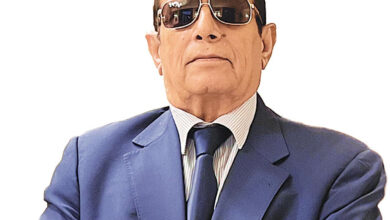Mr Narendra Modi has Opportunities with his new 5-Year Mandate
Modi has won the mandate for another five-year term as Prime Minister in the recent national elections, and apparently there are many challenges as well as opportunities that he has the chance now to tackle effectively.
I will restrict the scope here to Security, Defence and Civil and Military Aviation, where urgent requirements have been pending for long, particularly of legacy equipment and its replacement, progressively with Make in India industry trademarks that he so passionately advocates, and rightly so.
India’s routine modernisation process for the armed forces was disrupted after the acquisition of Bofors guns in the late 1980s over allegations of corruption, and all the three Services, the Indian Army, Navy and Air Force are short of modern systems, aircraft and even rifles and munitions. In fact, after IAF’s air strike over terrorist camps in Balakot in Pakistan, questions have been raised as to why IAF was still flying half a century old aircraft like the Mig 21s.
IAF, as well as the Army and Navy, can only be credited with doing their best with whatever they have, an expression often used by their commanders that triggers all of us to think why so. The nation though is thankful to the armed forces for maintaining the winning edge despite many old systems which should have gone long ago.
There are many suggestions, some from my learned friends in the strategic community, over what the PM and his team of NSA, and Miniisters of Defence, Foreign Affairs, Home, Finance and Civil Aviation should do. I include Civil Aviation as aircraft, civil or military, share common technologies and airliners are a major asset during a crisis. Then, there are suggestions for creating Integrated Theatre Commands and Battle Groups, and some conceptual reforms.
Whatever the suggestions, I have only one point to make: Whatever you do, to defend and fight within the existing structures, or with new thinking and concepts, the fundamental requirement is that of equipment. Most of the defence budget goes on salaries and pensions and no government has been able yet to mobilize resources to make up for the pending requirements. Enough money to buy new systems like Aircraft, Electronic Warfare systems, Guns, Precision Missiles, Unmanned Aircraft and Surface and Subsurface drones for the Navy, all these and whatever is projected by the armed forces has to be the Prime Minister’s Number One Priority.
How do you solve the proverbial Problem of Money?
I do not know but some cutbacks, a little bit of nibbling on freebies across the board, including cutting official expenditures of ministers who are rich by themselves as examples, perhaps could be considered. As the Head of the Government, he has the Talent and Tools at his command to find ways, and I am sure, he will.
– Gulshan Rai Luthra




